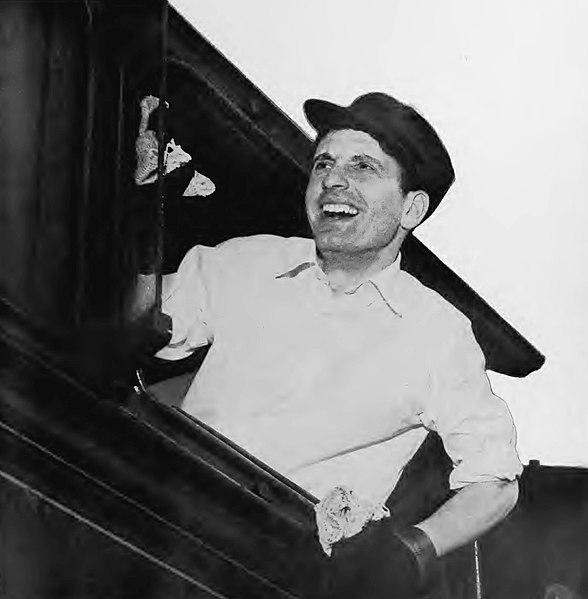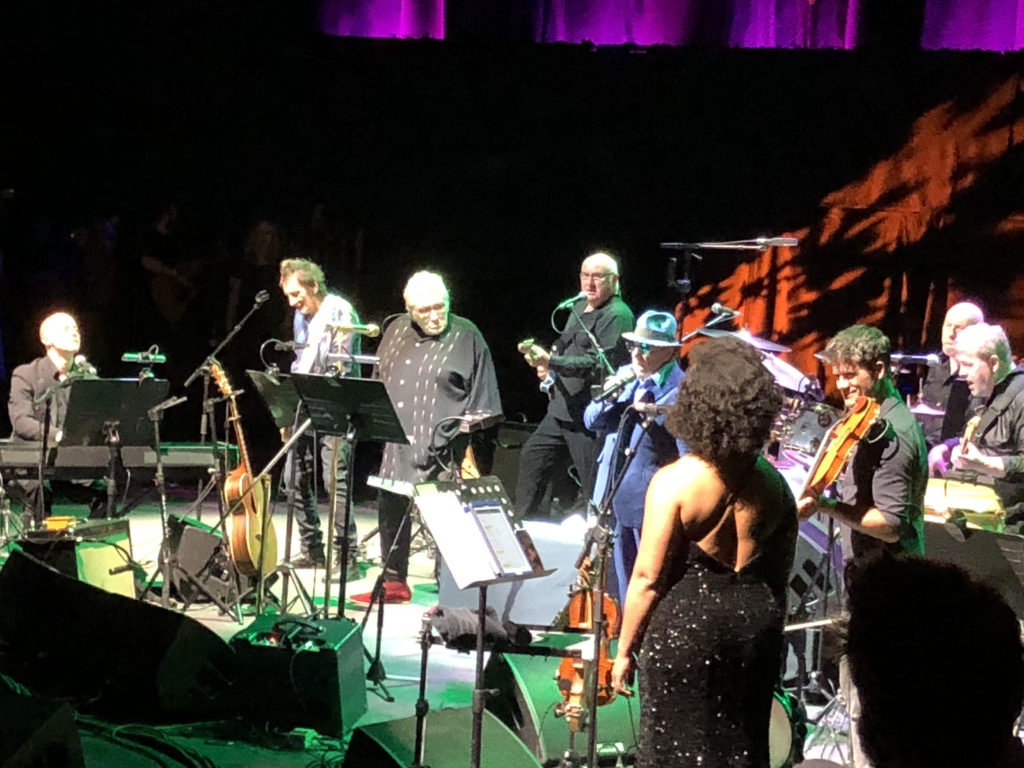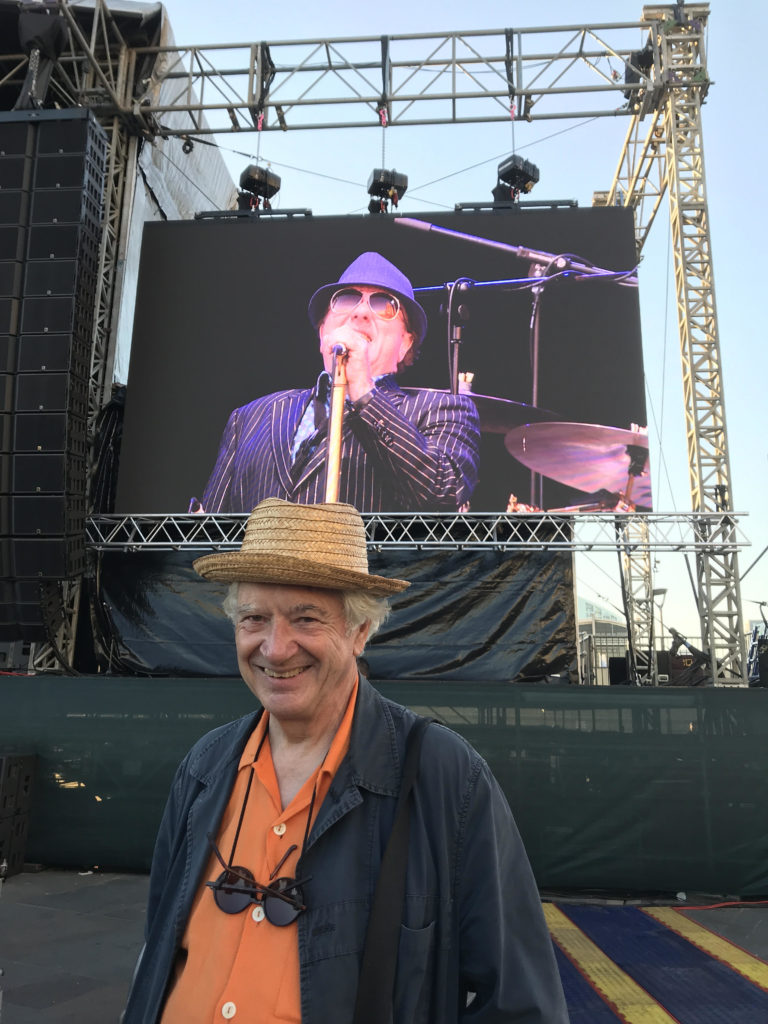 The album
The albumVan Morrison along with high calibre guests celebrated the raw, rootsy sounds that shaped his artistry. MICHAEL J. McDONAGH was at the Royal Albert Hall to witness the occasion
When I was under the age of 11 and still at an Irish Christian Brothers school in Cheshire, one of my happiest memories was staying at my friend’s parents holiday chalet in North Wales and spending hours in the garden playing Lonnie Donegan 78rpm records on a wind-up gramophone. It was about 1956 and we would sing along and try learn the words, captivated by the new and exciting sound of skiffle.
Under the paraffin lights at night we would tune the transistor radio into Radio Luxembourg and hear Chas McDevitt and his skiffle group fading in and out singing Freight Train, a song written by Peggy Seeger’s nanny and we would hear for the first time other songs taken from the raw roots of the African American jug bands of New Orleans in the 1920s.
Unknown to me at that time there was another schoolboy, across the Irish Sea in Belfast and a few months older than me, who was also enthralled by Lonnie Donegan.
 ALL ABOARD Lonnie Donegan riding on the Rock Island Line in 1956 (image by Cashbox via Wikimedia Commons)
ALL ABOARD Lonnie Donegan riding on the Rock Island Line in 1956 (image by Cashbox via Wikimedia Commons)But unlike me, with my zero musical talent, this boy had musical genius in bucket loads. He too was mesmerised by seeing Lonnie on the BBC TV programme 65 Special — it changed his life forever. The young Ivan Morrison mastered the guitar and formed his first band in 1957 a skiffle outfit called the Sputniks. And he performed the masterly stroke of dropping the ‘I’ from his name. Ivan became Van.
Fast forward 66 years later to the Royal Albert Hall last month.
In March of this year Van released Moving On Skiffle an album which revisits the music and roots that have so influenced him throughout his career. It was a joy for anyone lucky enough to be at The Royal Albert Hall to see Van perform these reworked songs from that era.
“I was still in school when I performed with a skiffle band – a couple of guitars, a washboard and a tea-chest bass,” said the singer. “I was already familiar with Lead Belly’s recordings, so when I heard Lonnie Donegan’s version of Rock Island Line I intuitively understood what he was creating. I knew that it was what I wanted to do. It was like an explosion.”
With his incredibly tight band starting first and laying down a solid rhythm on Streamline Train, Van emerged from the gloom playing his harmonica like a reincarnation of Sonny Boy Williamson.
The capacity crowd were enraptured. Remarkably Van’s soulful voice is in excellent form for a performer of his age and when it kicked in we were off on a rollercoaster ride through a set of classic skiffle and blues songs re-interpreted with vigour and finesse.
At one point Van paused to bring on an old mate, the legendary singer from the 1960s, Chris Farlowe to join him on Take This Hammer.
The mood changed and became more Celtic folky when Van was joined by another legend from the days of Jack Good’s Oh Boy TV shows, the master rock & roll guitarist Joe Brown.
Now 82, he still looked sprightly playing mandolin on Gypsy Dave. Later came the unmistakable sound of his signature twangy electric guitar.
Joe has been playing this music for six decades and it was remarkable to see him here having such fun jamming with Van’s band.
 Van and the band jam with guests
Van and the band jam with guestsThen no surprise — as he pops up everywhere — when the craggy, weathered-looking Ronnie Wood, the master guitarist from the Rolling Stones, crept onstage looking like a Dickensian Fagin. But unlike Fagin he had a low-slung electric guitar with him, and on Green Rocky Road he opted for an acoustic guitar.
When the band segued into a rousing Cotton Fields I almost imagined that the ghost of long since departed Lonnie Donegan would wander on stage and join in.
Van has always put together excellent bands with musicians of the highest quality and this tight seven-piece unit was no exception.
But special mention must go to the cheery Sticky Wicket on washboard as well as to the two newcomers. Award-winning multi-instrumentalist and songwriter Seth Lakeman, on fiddle and banjo, sounded like he’d just landed from the Appalachian mountains via the Quays in Galway (he actually comes from Devon).
Also — and actually from Galway via Bulawayo in Zimbabwe — backing singer Lucia Evans gave us the benefit of her exquisitely powerful soul voice.
It might have seemed remarkable to some diehard fans as they left the Royal Albert Hall that they had just experienced an entire Van Morrison concert without hearing even one of his classic songs such as Brown Eyed Girl, Gloria , Baby Please Don’t Go or Have I Told You Lately — but that was surely the whole point. Van was exclusively paying tribute to those skiffle songs and that music that has formed the bedrock of his entire musical career inspiring him and making it possible for all his great work.
I often think about my time at St Ambrose College, the Irish Christian Brothers college in Cheshire, and the seminal figure who attended that same school in the 1940s — Lonnie Donegan. He was the cornerstone of English blues and rock by launching in Britain, almost single-handedly, the skiffle sound. He inspired battalions of musicians as attested by the likes of Paul McCartney, Brian May, Keith Richard and Roger Daltrey. And a genius from Belfast called Van Morrison.
 Mick McDonagh enjoying the music
Mick McDonagh enjoying the music
